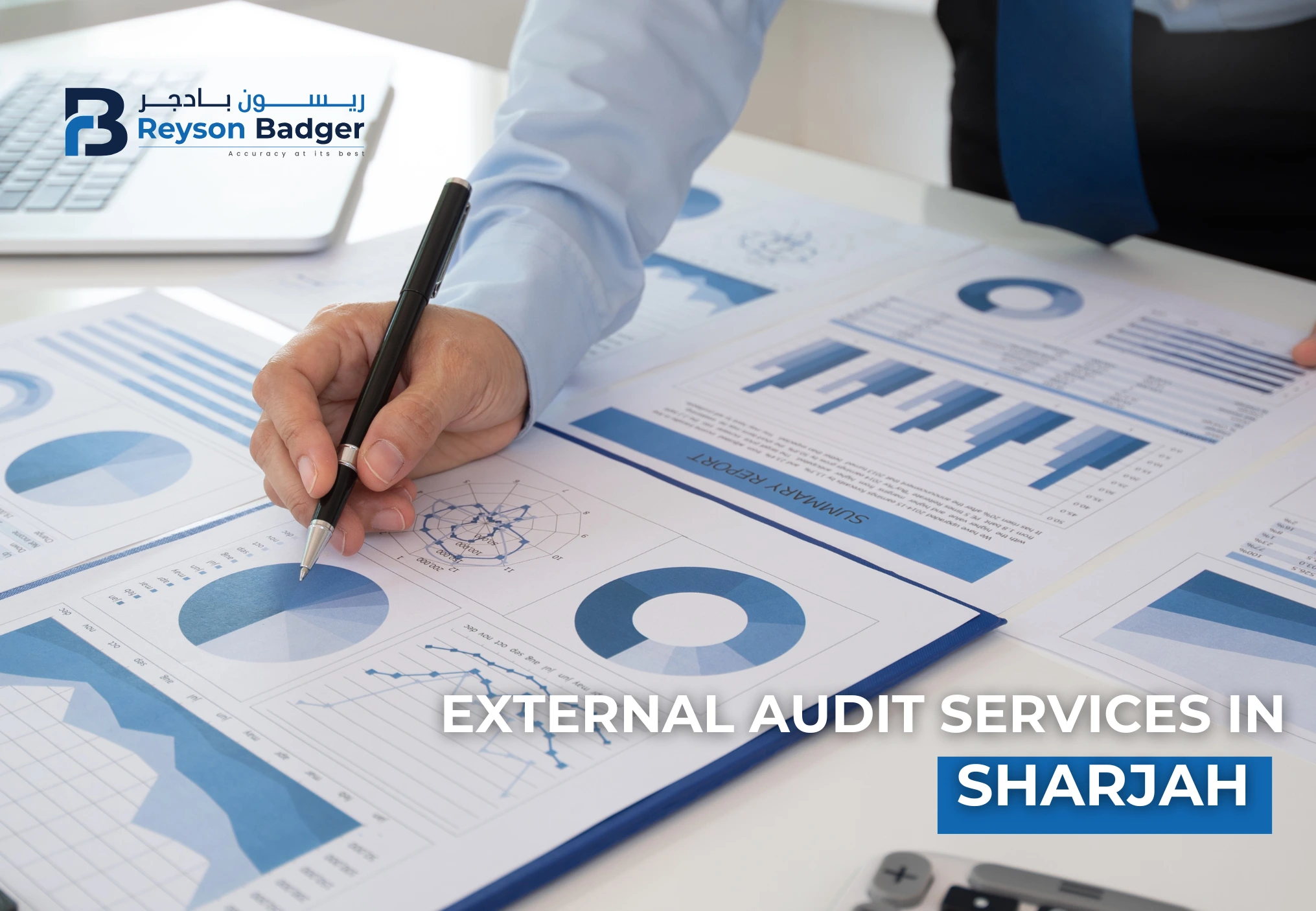
External audit services play an important role in providing an unbiased assessment of a company’s financial health. In Sharjah, these audits are carried out by independent, third-party firms who Examine financial statements carefully to ensure they comply with legal standards. This complete verification procedure assists companies in complying with legal standards, maintaining transparency, and avoiding potential legal issues.

The importance of external audits for businesses in Sharjah cannot be overstated. Not only do they build trust among stakeholders such as investors and banks, but they also improve financial transparency and accountability. For companies operating in Sharjah’s dynamic business environment, external audit ensures sound financial practices, helping them to gain the trust of their customers and partners
An external audit is an independent examination of a company’s financial statements by an external auditor, usually a Certified Public Accountant (CPA) or professional audit firm The main objective of this audit is to offer a fair evaluation of whether the financial statements accurately and fairly represent the financial status and operational performance of the organization. These measures are necessary to ensure transparency and accountability in financial reporting, particularly for publicly traded companies, where such audits are required by law to engage with investors protection of participants
The objectives of an external audit include:
External auditors play an important role in improving the reliability of financial statements. Their responsibilities are:
In summary, external auditing is an important way of ensuring the accuracy of financial statements. providing independent assurance of authenticity
External audits in Sharjah are important because of the many factors that contribute to the overall accuracy and efficiency of businesses operating in the region.
Statutory Audit
A statutory audit is a legally mandated review of an entity's financial statements to ensure accuracy and compliance with regulatory standards. This type of audit is often required by law and provides transparency, especially for publicly listed companies and government bodies.
Financial Audit
A financial audit examines an organization’s financial statements to verify their truthfulness and accuracy. This audit provides stakeholders, such as investors and creditors, with assurance that the financial information is fairly presented.
Compliance Audit
A compliance audit checks whether a business is adhering to specific industry laws, regulations, and internal policies. It ensures that the organization is following legal requirements and helps prevent fines and legal risks.
External audit procedures are systematic steps that external auditors follow to ensure a thorough examination of an organization’s financial statements and compliance with applicable standards. Here’s a detailed look at the key procedures involved:
Step 1: Auditor Appointment
The process begins with the appointment of an independent auditor, either by shareholders or the board, to ensure an unbiased assessment of the company's financial health. The auditor's qualifications and experience are critical for a reliable audit.
Step 2: Engagement Letter Acceptance
Once appointed, the auditor issues an engagement letter outlining the scope, objectives, and terms of the audit. This document is reviewed and accepted by the client, formalizing the audit agreement.
Step 3: Audit Program
The auditor creates an audit program that outlines the strategy, including timelines, key areas of focus, and testing methods. This step ensures a structured approach, tailored to the company's specific needs.
Step 4: Collection of Evidence
During the audit, the auditor gathers supporting documents and evidence, such as financial records, bank statements, and transaction reports. This evidence is reviewed to verify the accuracy and compliance of the financial data.
Step 5: Report Submission
After analyzing the evidence, the auditor prepares and submits a detailed audit report, providing an opinion on the financial statements' accuracy and whether they comply with legal standards
External audits are essential for businesses to ensure financial transparency, compliance with regulations, and to maintain credibility in the marketplace. These audits provide an unbiased review of financial statements, helping businesses identify areas of inefficiency, resource wastage, or potential risk. By conducting a thorough examination, external audits safeguard companies against legal penalties and improve investor confidence.
In Reyson Badger, our external audit services in Sharjah offer customized solutions that align with your business needs. We help ensure compliance with UAE’s financial regulations, reduce the risk of fraud, and improve operational efficiency. Additionally, our audits provide valuable insights that can lead to cost savings and improved decision-making, allowing businesses to grow sustainably and meet stakeholder expectations.